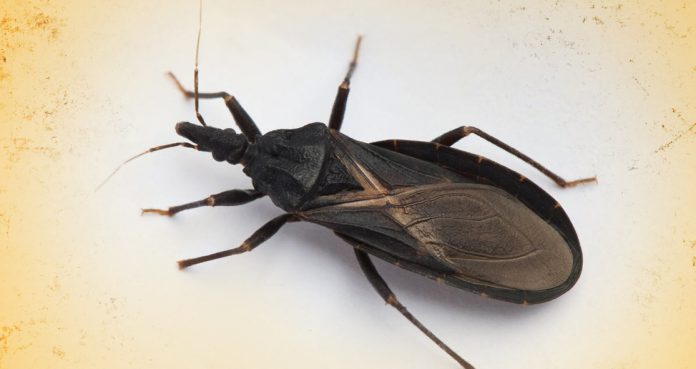An insect, which bites people around the mouth and could be potentially dangerous, is spreading farther north, including the Carolinas. It is called “Kissing Bug” and experts call it a silent killer.
Adult kissing bugs are about one inch long with black and orange/red stripes on the abdomen and thorax.
The bug has raised concerns because it can cause a potentially deadly Chagas disease, according to Dr. Matt Bertone of North Carolina State University’s Plant Disease and Insect Clinic.
Every year, millions of people are diagnosed with Chagas disease, while the cases are more concentrated in South and Central America.
The CDC said the bug sucks your blood and defecates, which can leave behind a parasite that can result in a potentially deadly Chagas disease.
Last year, the CDC officials warned the insects were moving from Central and South America and had been spreading far north, including the North and South Carolina.
The classical symptoms of Chagas disease include severe redness with intense itching. In complicated cases, it can be serious, causing irregular heartbeats that can even lead to sudden death, digestion problem, and an increased risk a stroke. Health officials said most people only experience mild symptoms.
The CDC recommended homeowners to remove the trash, wood, and rock piles, and get rid of any bird or animal nests. Although these preventive measures will help prevent the contact with kissing bugs, it is very unlikely one would ever encounter the insect anyway. If you think you have spotted the insect, the CDC advised to trap the bug in a container without touching it and fill the container with rubbing alcohol or freeze the bug. Take it to your county health department or university lab.






















